
Best OneNote Alternatives You Must Know About
- 18 Min read
Move all your Evernote documents to FuseBase quickly and easily with our experts' help
Book a demoEvernote has been in the market for many years and is still one of the most popular note taking apps, being used by millions of users around the world.
Most Evernote users stick with using Evernote notes because it works well enough, so they may not know there are alternatives that are even better.
Today, there are many alternatives to Evernote that offer similar features with fewer limitations. Some of these apps are completely free, and some of them offer paid subscriptions to get access to premium features, just like Evernote does.
If you’ve used Evernote in the past or you’re looking for Evernote alternatives, either for your personal use or for your company, and have been waiting for more information, then you’re in the perfect place as you can check out these apps that offer as many or more features.
Being a great note taking tool and productivity app, Evernote is a software application that supports how you collect information and helps you manage everything. You can use Evernote to share ideas, keep track of notes, recipes, quotes, documents, web clippings, photos, videos, audio files, voice memos, or something as simple as creating a to do list.
Evernote syncs across devices, making it easy to access what you need wherever you are. Evernote offers many features found in digital notebooks. You can use Evernote to take notes, organize information, keep track of tasks, manage projects, and improve your collaborative effort. Also, since Evernote supports many devices, whether you’re using Android, iPhone, Mac, or Windows, you can access your data no matter where you are. One thing to keep in mind is Evernote is not an open source, which means you cannot view or customize the source code to fit your needs.
The free Evernote note taking version includes basic features like creating and editing notebooks, adding text, images, and videos, saving web pages, and tagging items.
If you’re a note taker looking to add some extra functionality, Evernote offers paid monthly plans, which unlock premium features including offline mode, voice recording, document sharing, and collaborative workflows. The premium note taking features Evernote offers support any company with many users working in teams that need to collaborate with other members or communicate with customers anywhere in the world.
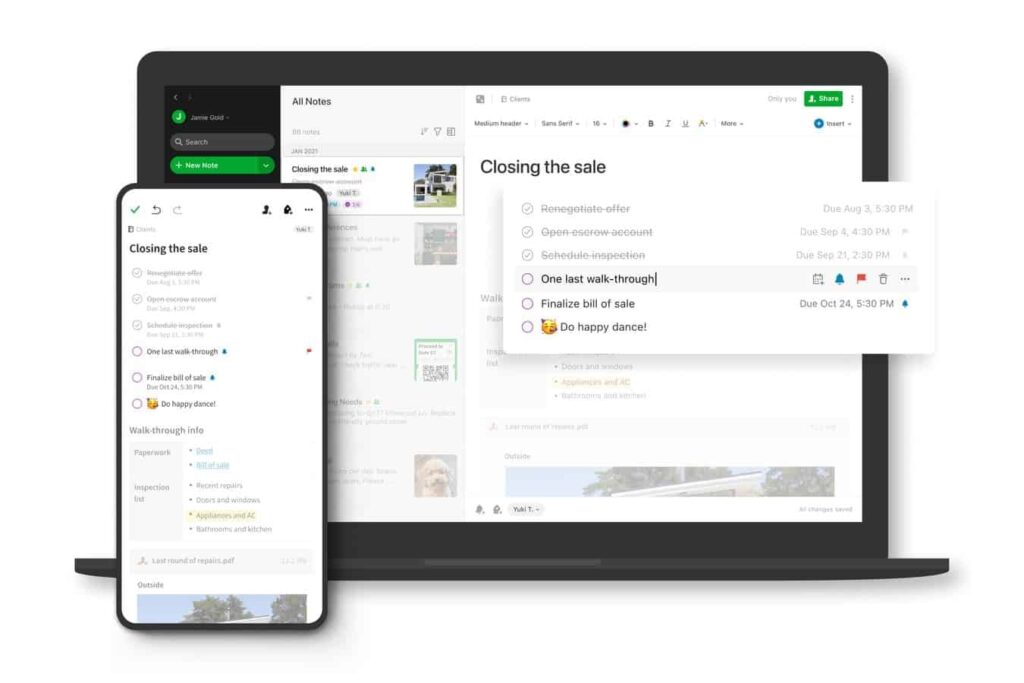
Evernote is a note taking application that focuses on capturing information and improving productivity. Whether you’re looking to take notes that’s accessible on multiple devices, brainstorm ideas, or keep track of your to do list and everything you’ve done throughout the day, there are a whole lot of reasons why you’d want to download the Evernote software app and take advantage of its key features.
Here are five ways the Evernote note taking app stands out among other note taking apps.
You might think that organizing notes into folders would make things easier, but Evernote lets you do whatever you want. If you want to put your notes into categories based on what they relate to, or even group them by date, you can do that. There are no limits to how you can organize your note cards or how to set up your note views in Evernote. You can take advantage of the Evernote organizational features and sort them by tags, keywords, or anything else you like. This makes your life easier with document or note management.
If you’re someone who likes note taking on multiple devices, Evernote is great because you don’t have to worry about syncing files between platforms. You can access other documents or notes on Windows, MacOS, Android, iOS, Linux, and even web browsers, which is great for organizing notes in Evernote. This way, you won’t have to worry about losing important information if you switch phones, tablets, computers, or use the Evernote web application.
As a note taking tool, one of the best parts about Evernote is that it gives you a single place or single platform, where you can store all of your thoughts and ideas. You can save text clippings and articles you find online, pictures you see, videos you watch, and much more, without much effort. All of your memories are stored here, so you’ll never forget something again.
When you create a new document or note in Evernote, you can easily attach files such as PDFs, Word docs, Excel spreadsheets, and PowerPoint presentations. Evernote supports several popular applications. When you send a link to a file, people will be able to view it right away without having to install anything.
Since Evernote stores your data on their servers, your information is safe. They encrypt your data before sending it over the Internet. Every Evernote account is verified. You can also set up two-step verification, so that only you can access your Evernote account, which is a good security feature.
The key features Evernote has include:
These features have made Evernote a popular note taking app in the market for many years that Evernote users expect to be available in the future as the company strives to improve.
Users can choose from one of four Evernote plans. The pricing options are:
The limitations of Evernote for note taking include:
If you want to maximize your efficiency and productivity with Evernote, your best option is their Professional plan, which will cost you over $100 per year based on their current pricing.
The main Evernote drawbacks and some of its missing key features include:
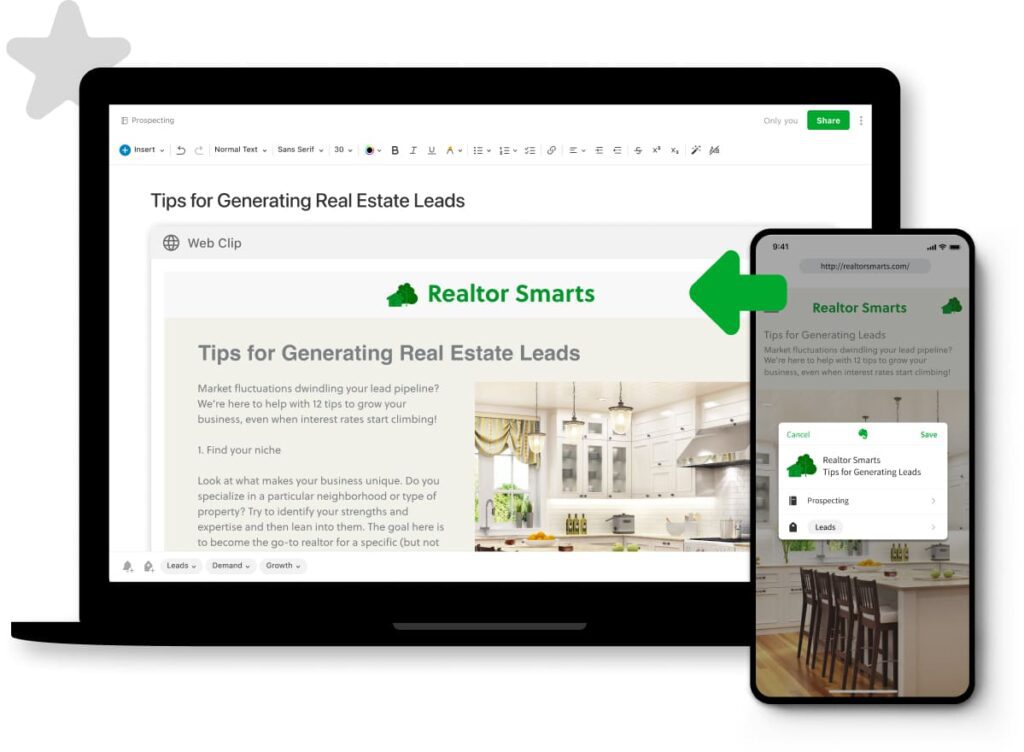
This means if you want to sync your notes across all your devices, you always need to have an internet connection. This is not always ideal for efficient note taking.
If for instance, you want to take notes using Apple Notes, you cannot add them directly into Evernote. You will need to manually copy and paste them into Evernote, which is not only time-consuming, but inefficient as well.
Many users have complained about the time it takes to save a file, or how long it takes to load a page. This often results in data being lost or not saved correctly, which can cause trouble if you’re dealing with sensitive data. This suggests the app can be unstable at times.
Evernote’s basic plan allows you to upload up to 60 MB of data per month. If you want more than this, you’ll need to upgrade to a higher plan. Most users who want to use Evernote for the productivity workflow will require more than what’s offered on the free Evernote plan.
For example, you cannot edit text within images or add custom fields. While you can create tags, add locations, and attach photos, you cannot do much else without paying for a higher plan.
You cannot connect Evernote to any other tools as it doesn’t support any third party integrations unless you’re on the Professional plan. For example, you cannot link your Evernote account with Gmail, Outlook, Box, or Dropbox. Since Evernote is not an open source app, you’re limited by how much customization you can do.
While you can export notes as HTML, RTF, CSV, or plain text, you cannot export notebooks as PDFs.
Advanced task management features are limited to the Professional plan. You cannot set reminders and due dates, deadlines, or reminders, nor can you assign tasks to multiple people at once. For more project management features, you need to subscribe to a paid Evernote plan.
Evernote was once a leader in the personal productivity space, but that has now changed as there are many Evernote alternative platforms today.
You need to explore Evernote alternative platforms because:
If you’re looking for a simple way to keep track of everything you need to remember, Evernote is still a good choice. It’s easy to use and offers plenty of useful features. Now that you have a better sense of Evernote’s features and limitations, if you’re looking for something more powerful with a better pricing option, that is an open source note taking app, consider finding an Evernote replacement.
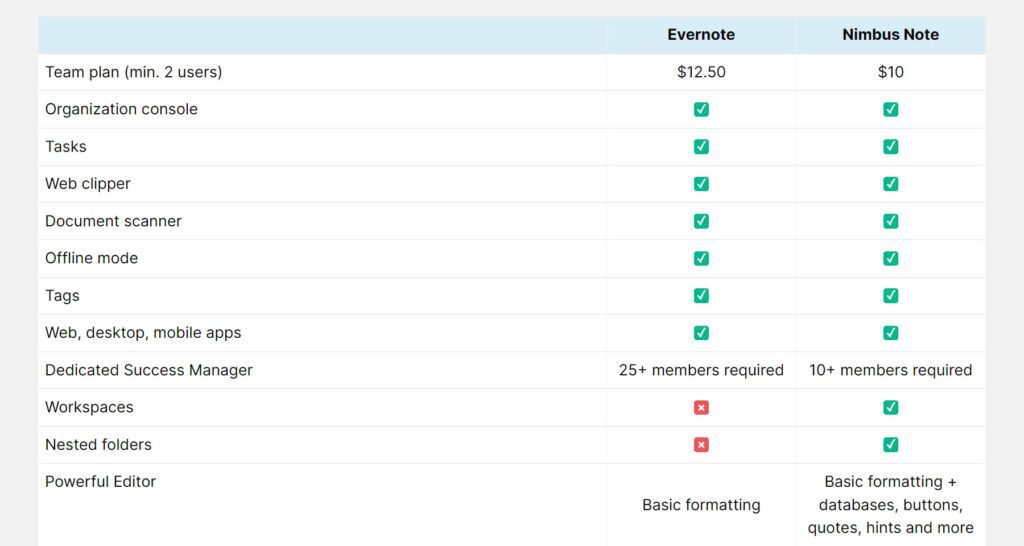
Choosing the right Evernote alternative platform depends on your needs. Here are some things to consider when exploring the best alternatives or if you want to go with the best alternative.
If you’re a user looking for something simple, the free version of Evernote may be worth exploring. It offers basic functionality such as tagging, adding locations, and attaching documents. If you’re an advanced user, other alternatives may support your needs better.
If you rarely work offline, you might find yourself needing to rely on cloud-based solutions. This means you’ll need to choose a service like Google Drive, OneDrive, Box, or iCloud.
Some Evernote alternatives are available as both mobile apps and desktop apps. If you’re a user who constantly switches between them, you need to find the best free Evernote alternatives.
If security is a concern since you frequently collaborate with colleagues or have multiple users in your business, you’ll probably want to explore Evernote competitors that offer better collaboration options and tools or support your workflows.
If you’re juggling several projects at once, you’ll need to look for a solution that allows you to easily switch between projects and has a better project management option.
If you need to store large amounts of data, you’ll need to explore Evernote alternatives that offer higher storage limits or unlimited storage space.
If you need to manage tasks and add or post comments, you’ll need to check out Evernote alternatives that have better task management features.
If you need help with organizing files, you’ll need to take a closer look at Evernote alternatives that support more robust file organization.
If you need a powerful tool with a robust search function that lets you search through all your notes, you’ll need to try out Evernote alternatives. You can also use this feature to quickly locate specific notes.
If your notes don’t already contain tags, you’ll need to find a tool that supports adding tags to your notes and linking between notes.
Here are some of the best Evernote alternatives in the world today that will satisfy the most of the needs of basic and advanced users.
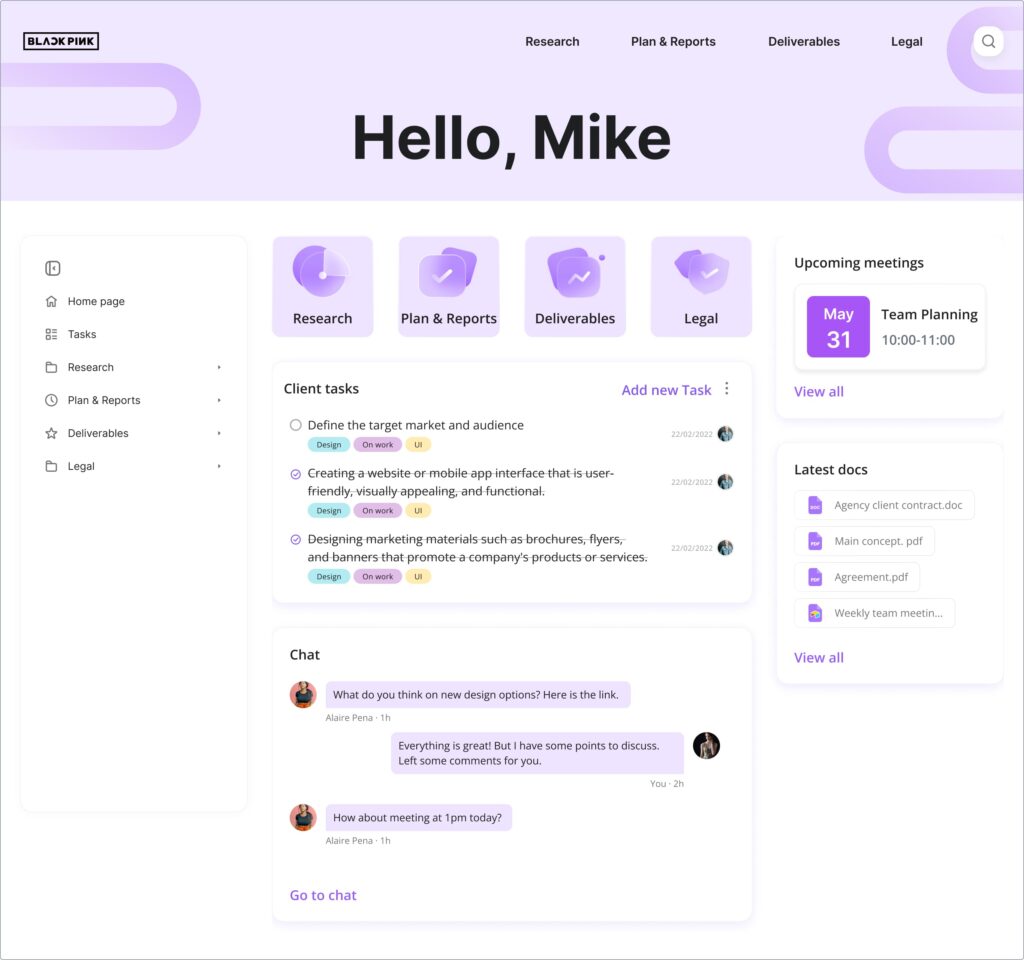
FuseBase (formerly Nimbus) is a good free alternative to Evernote that’s worth exploring. Unlike Evernote, you don’t have upload limits and you have ultimate control on how you want to take notes.
The core features FuseBase offers include:
For a more detailed comparison between Evernote and FuseBase and why it’s one of the best Evernote alternatives, please visit this page.
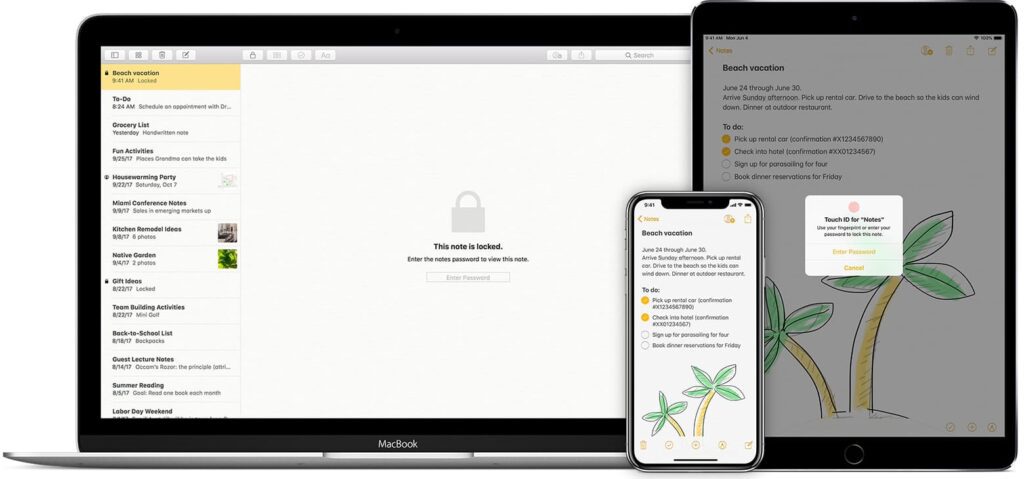
As one of the free Evernote alternatives, Apple Notes is a simple app, with a nice interface, that works well for taking notes, storing notes, creating outlines, and adding tags. If you’re an Apple user, this is a great alternative to capture ideas.
Apple Notes offers features like:
Although regarded as one of the best Evernote alternatives, the main limitations of Apple Notes include:
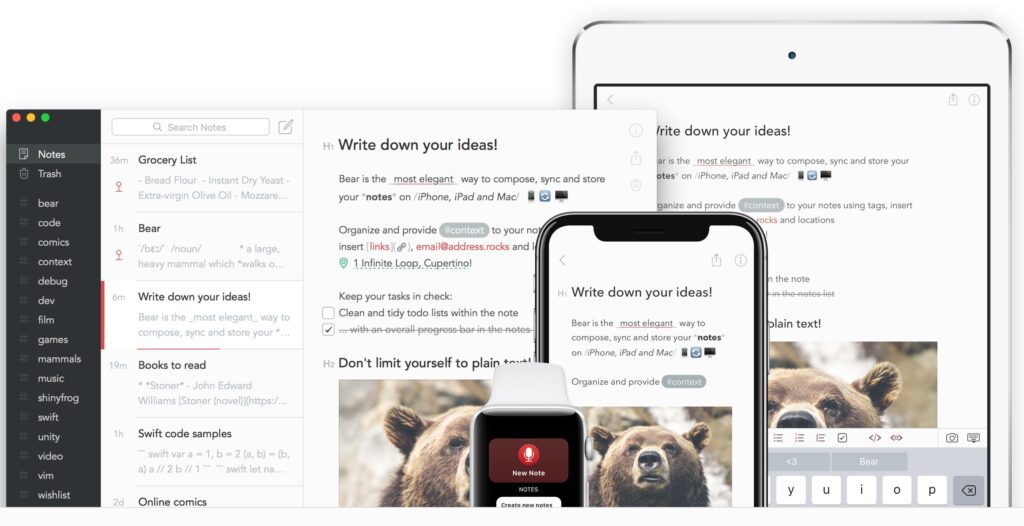
Another good alternative to Evernote, Bear is a flexible writing app for crafting notes. A capable note-taking tool, Bear offers a beautiful interface that works on iPhone, iPad, and Mac, so you can write wherever you want.
The features Bear offers include:
While Bear may not be the best Evernote alternative, it’s still a good alternative to Evernote, however, its limitations include:
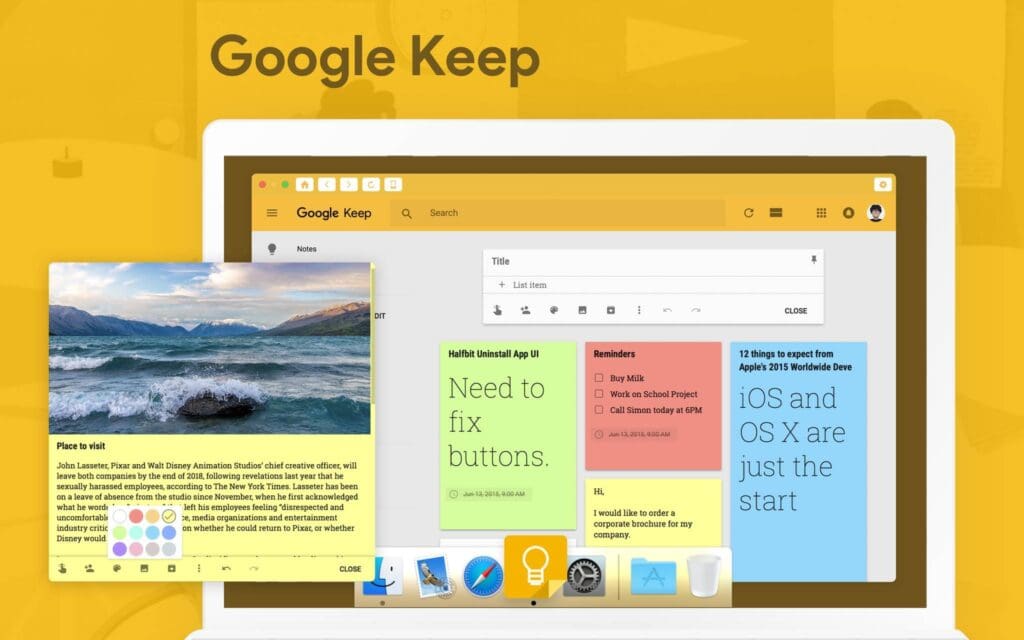
Offering a simple interface, Google Keep is another good alternative to Evernote that lets you create lists and draw pictures. Google Keep is super easy to use to capture an idea, set a reminder, or create a grocery list.
Google Keep is a useful tool which offers features like:
Google Keep is better than a low-cost alternative to Evernote because its available on a free plan.
The limitations Google Keep has compared to other Evernote alternatives include no notebook or folder structure, basic formatting and editing options, cannot embed notes or create notes from your inbox, and cannot add a password to protect your notes.
For a more detailed comparison between FuseBase and Google Keep, please visit this page.
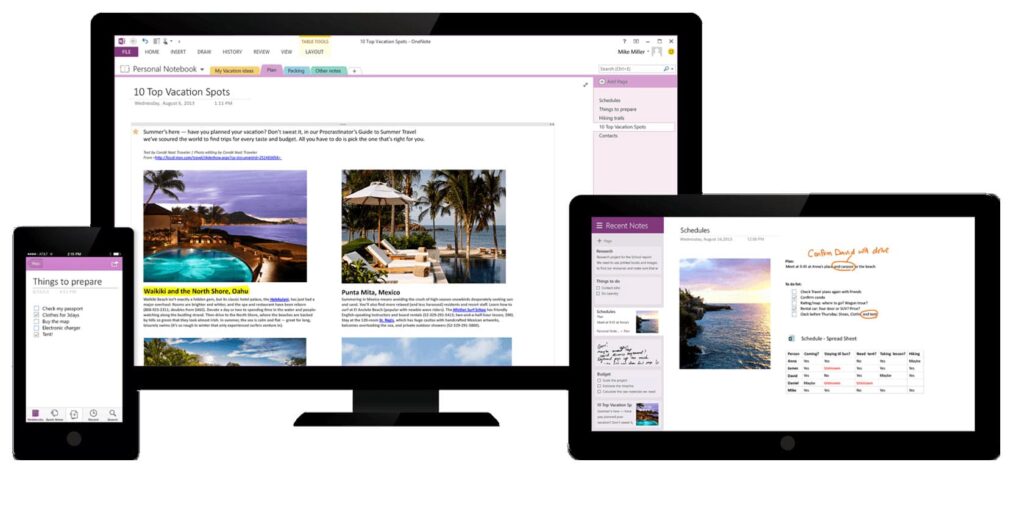
You can use Microsoft OneNote to organize your notes in notebooks, sections, and individual pages. With Microsoft OneNote, you can easily navigate your notes by using simple navigation and interface layout, and search features.
The features Microsoft OneNote offers include:
The limitations of Microsoft OneNote include:
For a more detailed comparison between Microsoft OneNote and FuseBase, please visit this page.
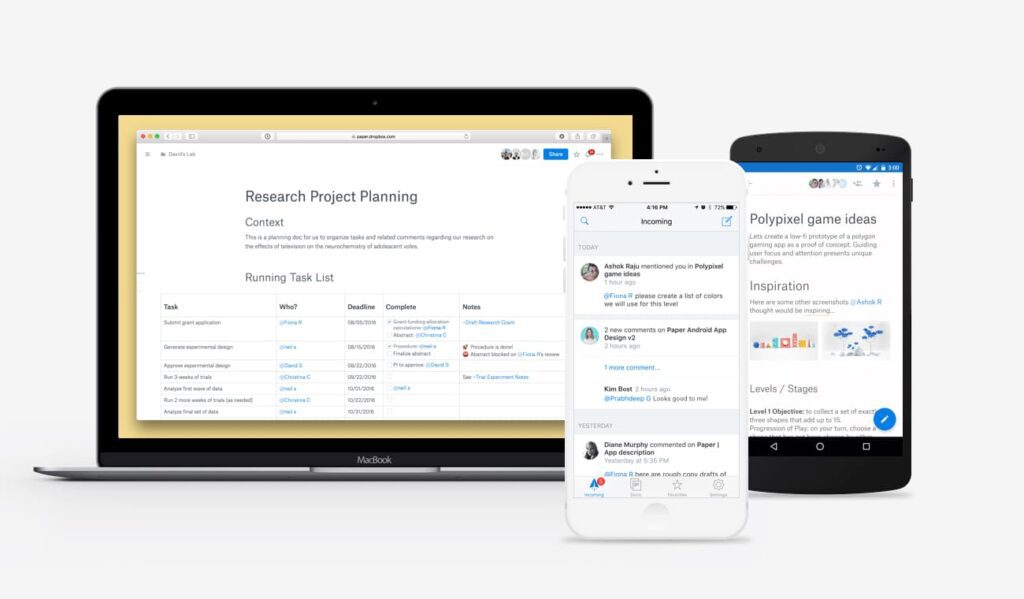
Positioned as more than a document app, Dropbox Paper is a project management software tool that brings creation and coordination together in one place.
The features Dropbox Paper offers include:
The limitations of Dropbox Paper include lack of word processing control with basic editing and customization options, lack of a spell-checker, which makes it not a good option for document or word processing, inability to create spreadsheets, and it does not offer anything additional than what Google Drive offers if it’s used for collaboration.
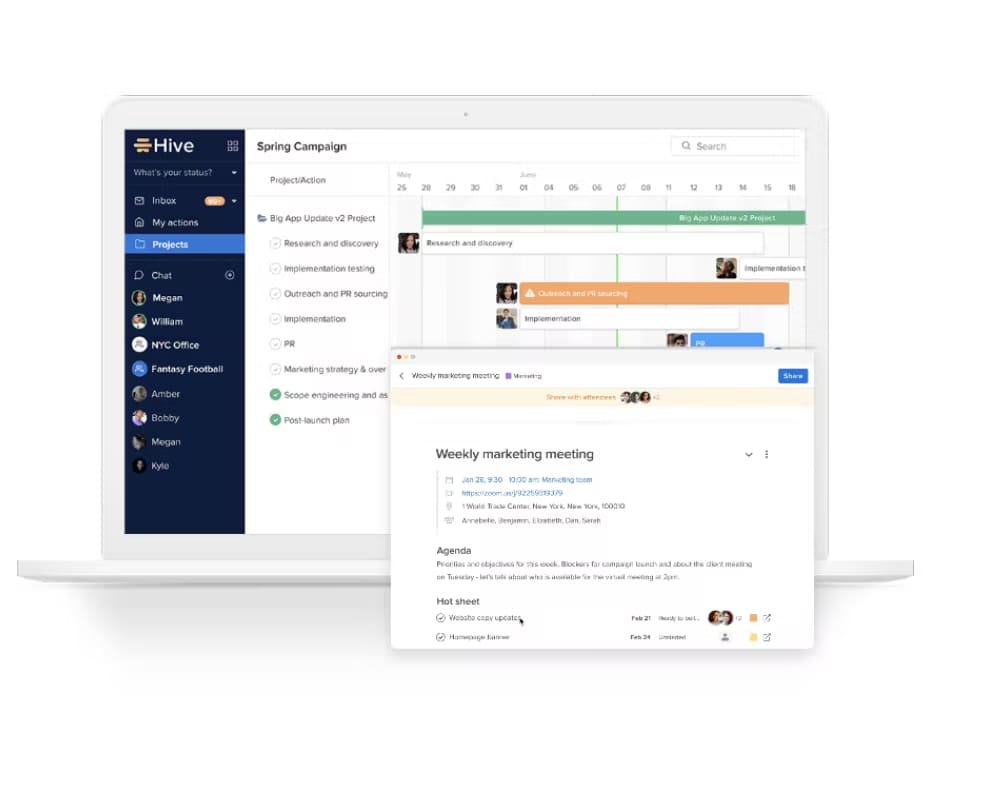
Bets suited for team collaboration and meetings, with Hive Notes, you can create notes, agenda, templates, assign tasks and collaborate with teams and other users.
The features the Hive Notes software app offers include:
The limitation of Hive Notes includes no time tracking option, no add-ons for better analytics, and cannot create custom workflows. There is a steep jump from their free Solo plan to their Teams plan, which is $12 per user per month.

NoteJoy is a popular freemium alternative to Evernote. The app has a structured and intuitive interface. The free plan covers all the basic needs of a solo user or a team starting out. Paid plans include advanced features like notes history, offline access, and guest seats.
Here are the key features and benefits of NoteJoy:
Unlike Evernote, NoteJoy does not have sync conflicts. It’s also affordable and collaborative, making it a great alternative to Evernote. The note-taking app is available on the Web, MacOS, Windows, and both Android and iOS.
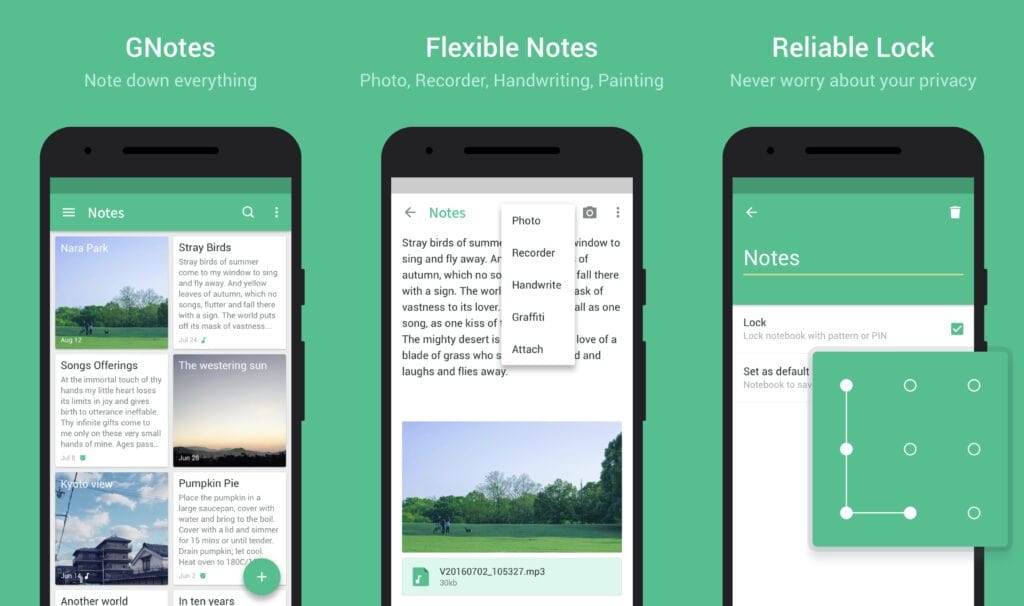
GNotes (don’t confuse it with Google Notes) is a free minimalistic app for note-taking. Compared to popular competitors, including Evernote, it does not have an extensive range of features. However, it will suffice for simple note-taking and organization.
This is what you can do with GNotes:
The app is not tailored for collaboration or professional use, and its functionality better suits personal note-taking needs. However, GNotes is completely free, which might be a decisive factor in some cases.
In conclusion, if you haven’t already started using Evernote or you have an Evernote account and want a cheaper option, now is the perfect time to finally explore Evernote alternatives.
The Evernote alternatives mentioned can become an integral app in your daily workflow. Before you choose one, test them by signing up to their free plans.
We’d definitely recommend you to start with FuseBase. It is the best tool for remote work that will help you manage everything in one place. This app is great for teams located in different parts of the world which need a unified system for effective collaboration. It’s completely free to start with, and you can cancel your subscription at any time!
Do you want to know more about the difference between FuseBase and Evernote?
Disclaimer
Parties other than FuseBase may provide products, services, recommendations, or views on the FuseBase site (“Third Party Materials”). FuseBase is not responsible for examining or evaluating such Third Party Materials, and does not provide any warranties relating to the Third Party Materials. Links to such Third Party Materials are for your convenience and do not constitute an endorsement of such Third Party Materials.
Found it useful? Share the article with your community
Get weekly tips and insights on how to grow your business